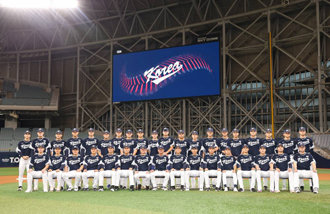[Editorial] Arbitrary Reform of Newspapers is Not Right Thing to Do
[Editorial] Arbitrary Reform of Newspapers is Not Right Thing to Do
Posted September. 01, 2004 22:05,
There was reportedly a heated debate on the new newspaper law which the ruling party is attempting to introduce at a national forum on legislation bills for press reforms hosted by the Political Communication Research group at the National Assembly. The newspaper law is expected to replace the current law on publications and to articulate regulations on and support for newspapers. Apart from this legislation bill, the ruling party is attempting to push through press reforms with a new law allowing punitive damages against newspapers.
However, the bills contain so many defective clauses that they cause mixed reactions even within the ruling party, and they cause severe concerns about freedom of the press and the free-market economy. All the questions raised at the forum two days back revealed only the tip of the iceberg.
The measures which the ruling party is taking should be called reform of newspapers, rather than blanketed as the reform of the media. This is because they target newspapers, skirting broadcasters. Its attempt to cap the market share of newspapers exemplifies this. They assert that they will discipline the top three newspapers as monopolies for their large share of the market. Their rationale: the three newspapers, Dong-A, Chosun, and Joon-angs monopolization of public opinion has reached a critical level.
It once said it would discipline the three when their combined share reached 70 percent. Recently it reduced the discipline-triggering share to 60 percent. This is a rubber band-like expediency which lacks any basis. It reveals the ruling partys scam to discipline some newspapers one way or another.
If the Big Threes monopolization of public opinion is what matters, it will be reasonable to use the extent of their influence in the public opinion market in measuring their market share. This means that broadcasters and online media should be reviewed for their market shares, but the ruling party fails to come up with ways to figure them out. Any standards proposed by the ruling party wont guarantee impartiality. If thats possible, to respect regulations based on a market share ceiling, the newspapers will have to get subscribers to cancel their subscriptions. Feasibility aside, their controlling and undemocratic idea is shocking to us.
Attempt to put a 30 percent limit on the share of a newspaper by its owner is another point of contention. It said the ceiling is inspired by the same share limit under the law on broadcasters. However, this is an irrational effort to treat newspapers, which are privately owned, like broadcasters, which lease frequencies, a public property. What is more fundamental: the attempts may unconstitutionally breach the right to private property.
Allowing massive punitive damages against the press also has a danger of gagging the criticism of the press. Irrationality and abnormality were also stark when the Fair Trade Commission set what amounts to one-fifth of its yearly budget for rewards for whistle blowers for ABC violations.
It is self-evident why such contradictions and irrationalities are happening. One pro-government media scholar emphasized at the forum that, the goals of media reforms are to overcome the Big Three. When the ruling party and the government, driven by a political agenda, arbitrarily attempted to control the newspaper market, irrational measures were bound to be brought out. Newspaper reform has already made a wrong first step.
Headline News
- Pres. Yoon addresses the nation at a press conference
- LX Group chairman gifts 100 million won to employee family welcoming quadruplets
- Tax-exempt shared offices in rural areas misused as tax havens
- President-Elect Trump promises 'peace through strength'
- French gambler wins 67.2 billion won by betting on Trump’s election win







